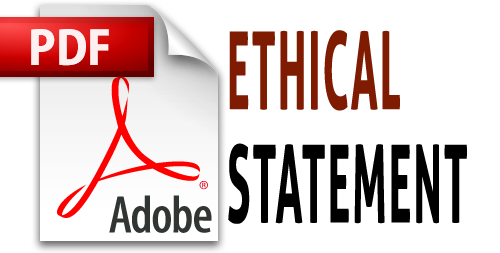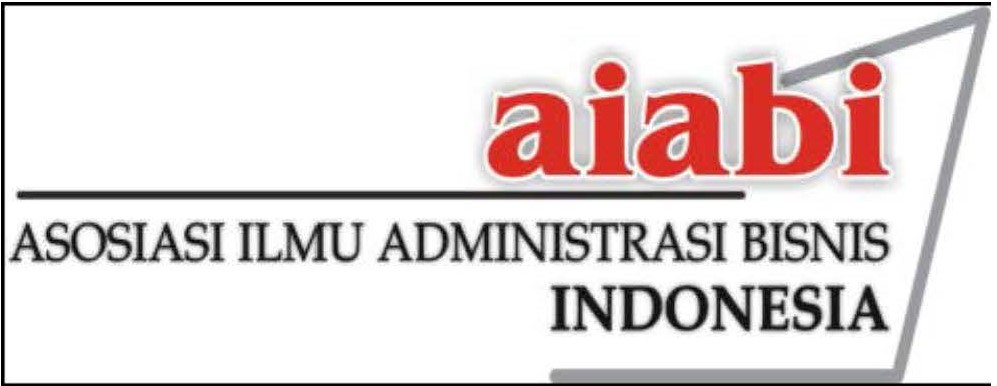PROSES INOVASI SOSIAL DALAM MENCIPTAKAN INOVASI SOSIAL PADA BANK SAMPAH DI KABUPATEN BANDUNG BARAT PADA TAHUN 2021-2022
Abstrak
This study aims to find out how the process of social innovation at Trash Banks in West Bandung Regency (KBB) creates social innovation as a business development solution. This research is a case study research. The locus of research is the Trash Banks in West Bandung Regency as many as 10 Trash Banks. The informants consisted of 30 people who were representatives of the Trash Bank, village government and the KBB Environmental Service, communities, businesses and academics. Data collection techniques through participant observation, interviews, questionnaires, and documentation studies. The data analysis technique uses the concept of social innovation process which is then carried out by SWOT analysis to formulate business development strategies. The results of the study show that the Trash Bank in West Bandung Regency implements the Social Innovation Process by going through 5 stages. The first stage is identifying social problems and internal problems of the Trash Bank and identifying stakeholders through interviews and FGD activities with the Chairpersons of the Trash Bank. The second stage is to equalize perceptions and formulate strategies/solutions with stakeholders on the problems faced by the Trash Bank through FGD activities. The third stage is carrying out mapping of the capacity of the Trash Bank and all stakeholders as well as a feasibility study. The fourth stage is designing cooperation/collaboration with stakeholders. In the fifth stage, 13 forms of social innovation were obtained which are expected to encourage the KBB Trash Bank to become a sustainable Trash Bank.
Penelitian ini bertujuan untuk mengetahui bagaimana proses inovasi sosial pada Bank Sampah di Kabupaten Bandung Barat (KBB) dalam menciptakan inovasi sosial sebagai solusi pengembangan usaha. Penelitian ini merupakan penelitian studi kasus. Lokus penelitian yaitu Bank Sampah di Kabupaten Bandung Barat sebanyak 10 Bank Sampah. Informan terdiri dari 30 orang yang merupakan perwakilan dari Bank Sampah, pemrintah desa dan Dinas Lingkungan Hidup KBB, komunitas, bisnis, dan akademisi. Teknik pengumpulan data melalui observasi partisipan, wawancara, kuesioner, dan studi dokumentasi. Teknik analisis data dengan menggunakan konsep proses inovasi sosial yang selanjutnya dilakukan analisis SWOT untuk merumuskan strategi-strategi pengembangan usaha. Hasil penelitian menunjukkan bahwa Bank Sampah di Kabupaten Bandung Barat melaksanakan Proses Inovasi Sosial dengan melalui 5 tahapan. Tahap pertama mengidentifikasi permasalahan sosial dan masalah internal Bank Sampah serta mengidentifikasi stakeholders melalui kegiatan wawancara dan FGD dengan para Ketua Bank Sampah. Tahap kedua melakukan penyamaan persepsi dan perumusan strategi/solusi dengan para stakeholders terhadap permasalahan yang dihadapi Bank Sampah melalui kegiatan FGD. Tahap ketiga melaksanakan mapping terhadap kapasitas Bank Sampah dan semua stakeholders serta studi kelayakan. Tahap keempat merancang kerja sama/kolaborasi dengan para stakeholders. Tahap kelima diperoleh 13 bentuk inovasi sosial yang diharapkan dapat mendorong Bank Sampah KBB menjadi Bank Sampah yang berkelanjutan.
Kata Kunci
Teks Lengkap:
PDFReferensi
A. Pearce, John II, Richard B. Robinson, Jr. 2014. Manajemen strategi. Jakarta: Salemba Empat.
Carayannis, E. G., Grigoroudis, E., Stamati, D., & Valvi, T. (2021). Social Business Model Innovation: A Quadruple/Quintuple Helix-Based Social Innovation Ecosystem. IEEE Transactions on Engineering Management, 68(1), 235–248. https://doi.org/10.1109/TEM.2019.2914408
C. Kreutz, “Introduction to open and social innovation andhow to get started,” Crisscrossed GmbH, 2014. [Online]. Available: https://www.crisscrossed.net/2014/12/18/introduction-social-andopen-innovation
Creswell, J. W. (2002). Desain Penelitian Kualitatif. KIK Press.
Defourny, J., & Nyssens, M. (2017). Fundamentals for an International Typology of Social Enterprise Models. Voluntas, 28(6), 2469–2497. https://doi.org/10.1007/s11266-017-9884-7
D`amario, E. Q., & Comini, G. M. (2020). Social innovation in brazilian social entrepreneurships: A proposed scale for its classification. Revista Brasileira de Gestao de Negocios, 22(1), 122–140. https://doi.org/10.7819/rbgn.v22i1.4037
Dees, J. G. (1998). Enterprising Nonprofits. Harvard Business Review, 76(1), 54–67.
Dhewanto, W., Mulyaningsih, H. D., Permatasari, A., Anggadwita, G., & Ameka, I. (2013). Inovasi dan Kewirausahaan Sosial, Panduan Dasar Menjadi Agen Perubahan (Pertama). Afabeta, cv. www.cvalfabeta.com
Edukasi. (2021). 6 Dampak Sampah Plastik dan Cara Mengurangi Penyebarannya, [Online]. Available: https://bijakberplastik.aqua.co.id/publikasi/edukasi/6-dampak-sampah-plastik-dan-cara-mengurangi-penyebarannya/
Ghozali, Imam dan Chariri, Anis. 2007. Teori Akuntansi, Edisi 3, Universitas Diponegoro, Semarang.
Kotler, Philip., Keller, Kevin L. (2013). Manajemen Pemasaran, Jilid Kedua, Jakarta: Erlangga.
Okpara, J. O., & Halkias, D. (2011). Social entrepreneurship: an overview of its theoretical evolution and proposed research model. International Journal of Social Entrepreneurship and Innovation, 1(1), 4. https://doi.org/10.1504/ ijsei.2011.039808.
Phills, J., A. J, Deiglmeimer, K., & Miller, D. (2008). Rediscovering Social Innovation. Stanford Social Innovation Review, Fall 2008, 34.
Prahalad, C. K., & Ramaswamy, V. (2004). The Future of Competition: Co-Creating Unique Value with Customer. Harvard Business School Press.
Putri, P. A. V. A., & Santoso, E. B. (2020). Analisis Pemangku Kepentingan dalam Pengembangan Kawasan Cagar Budaya sebagai Destinasi Wisata Kota Pontianak. Jurnal Wilayah Dan Lingkungan, 8(3), 202–213. https://doi.org/10.14710/jwl.8.3.202-213
Raharja, S. (2010). Pendekatan Kolaboratif Dalam Pengelolaan Daerah Aliran Sungai Citarum. Bumi Lestari Journal of Environment, 222–235. http://ojs.unud.ac.id/index.php/blje/article/view/125
Rangkuti, F. (2016). Analisis SWOT Teknik Membedah Kasus Bisnis. Jakarta: Gramedia
Roberts, R. W. 1992. Determinants of Corporate Social Responsibility Disclosure: An Application of Stakeholder Theory. Accounting, Organizations, and Society 17(6).
Sanusi, N. A., Mohamad, M. F., & Sa’at, N. H. (2019). Inovasi Sosial Komuniti Nelayan Mersaing (Pertama). UMT, Universiti Malaysia Terengganu. http://penerbit.umt.edu.my
Sistem Informasi Pengelolaan Sampah Nasional. (2020). Komposisi Sampah. [Online]. Available: https://sipsn.menlhk.go.id/sipsn/
Tanimoto, K. (2010). The Pocess of Social Innovation: Multi-Stakeholders Perspektif. Hitotsubashi University.
Taufan Adharsyah. 2019. Segini Parah Ternyata Masalah Sampah Plastik di Indonesia. CNBC Indonesia. [Online]. Available: https://www.cnbcindonesia.com/lifestyle/20190721140139-33-86420/sebegini-parah-ternyata-masalah-sampah-plastik-di-indonesia
Wikipedia. (2020). Ci Tarum. [Online]. Available: https://id.wikipedia.org/wiki/Ci_Tarum
Yunus, M., Moingeon, B., & Lehmann-Ortega, L. (2010). Building social business models: Lessons from the grameen experience. Long Range Planning, 43(2–3), 308–325. https://doi.org/10.1016/j.lrp.2009.12.005
DOI: https://doi.org/10.24198/adbispreneur.v8i2.44495
Refbacks
- Saat ini tidak ada refbacks.









